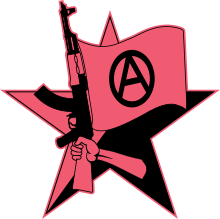Queer anarchism
Queer anarchism (or anarcha-queer) is an anarchist school of thought that advocates anarchism and social revolution as a means of queer liberation and abolition of homophobia, lesbophobia, transmisogyny, biphobia, transphobia, heteronormativity, patriarchy, and the gender binary. People who campaigned for LGBT rights both outside and inside the anarchist and LGBT movements include John Henry Mackay,[1] Adolf Brand and Daniel Guérin.[2] Individualist anarchist Adolf Brand published Der Eigene from 1896 to 1932 in Berlin, the first sustained journal dedicated to gay issues.[3][4]
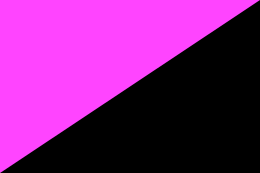
History
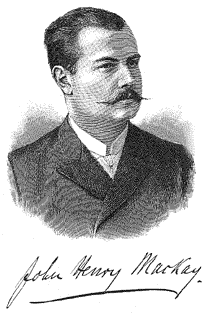
Anarchism's foregrounding of individual freedoms made for a natural defense of homosexuality in the eyes of many, both inside and outside of the anarchist movement. In Das Kuriositäten-Kabinett (1923), Emil Szittya wrote about homosexuality that "very many anarchists have this tendency. Thus I found in Paris a Hungarian anarchist, Alexander Sommi, who founded a homosexual anarchist group on the basis of this idea". His view is confirmed by Magnus Hirschfeld in his 1914 book Die Homosexualität des Mannes und des Weibes: "In the ranks of a relatively small party, the anarchist, it seemed to me as if proportionately more homosexuals and effeminates are found than in others".[5] Italian anarchist Luigi Bertoni (who Szittya also believed to be homosexual) observed: "Anarchists demand freedom in everything, thus also in sexuality. Homosexuality leads to a healthy sense of egoism, for which every anarchist should strive".
In Oscar Wilde's The Soul of Man under Socialism, he passionately advocates for an egalitarian society where wealth is shared by all while warning of the dangers of authoritarian socialism that would crush individuality.[6] He later commented: "I think I am rather more than a Socialist. I am something of an Anarchist, I believe".[7] In August 1894, Wilde wrote to his lover Lord Alfred Douglas to tell of "a dangerous adventure". He had gone out sailing with two lovely boys—Stephen and Alphonso—and they were caught in a storm. "We took five hours in an awful gale to come back! [And we] did not reach pier till eleven o’clock at night, pitch dark all the way, and a fearful sea. [...] All the fishermen were waiting for us". Tired, cold and "wet to the skin", the three men immediately "flew to the hotel for hot brandy and water", but there was a problem as the law stood in the way: "As it was past ten o’clock on a Sunday night the proprietor could not sell us any brandy or spirits of any kind! So he had to give it to us. The result was not displeasing, but what laws!". Wilde finishes the story: "Both Alphonso and Stephen are now anarchists, I need hardly say".[6]
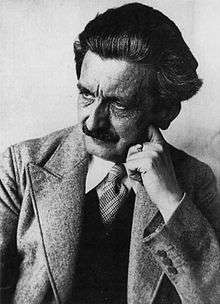
Anarcho-syndicalist writer Ulrich Linse wrote about "a sharply outlined figure of the Berlin individualist anarchist cultural scene around 1900", the "precocious Johannes Holzmann" (known as Senna Hoy): "an adherent of free love, [Hoy] celebrated homosexuality as a 'champion of culture' and engaged in the struggle against Paragraph 175".[8] The young Hoy (born 1882) published these views in his weekly magazine Kampf (Struggle) from 1904, which reached a circulation of 10,000 the following year. German anarchist psychotherapist Otto Gross also wrote extensively about same-sex sexuality in both men and women and argued against its discrimination.[9] Heterosexual anarchist Robert Reitzel (1849–1898) spoke positively of homosexuality from the beginning of the 1890s in his German-language journal Der arme Teufel (Detroit).
John Henry Mackay was an individualist anarchist known in the anarchist movement as an important early follower and propagandizer of the philosophy of Max Stirner.[10] Alongside this, Mackay was also an early signer of (Magnus) Hirschfeld's "Petition to the Legislative Bodies of the German Empire" for "a revision of the anti-homosexual paragraph 175 (his name appeared in the first list published in 1899)".[11] He also kept a special interest about Oscar Wilde and was outraged at his imprisonment for homosexual activity.[11] Nevertheless, Mackay entered into conflict with Hirschfeld and his organization the Scientific Humanitarian Committee.[12]
The individualist anarchist Adolf Brand was originally a member of Hirschfeld's Scientific Humanitarian Committee, but formed a break-away group. Brand and his colleagues, known as the Gemeinschaft der Eigenen ("Community of Self-owners"), were also heavily influenced by the writings of Stirner.[4]
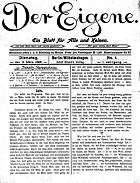
They were opposed to Hirschfeld's medical characterization of homosexuality as the domain of an "intermediate sex".[13] Ewald Tschek, another homosexual anarchist writer of the era, regularly contributed to Adolf Brand's journal Der Eigene and wrote in 1925 that Hirschfeld's Scientific Humanitarian Committee was a danger to the German people, caricaturing Hirschfeld as "Dr. Feldhirsch". Although Mackay was closer in views to Brand and his "Community of Self-owners" in some respects as compared to Hirschfeld's Scientific Humanitarian Committee, nevertheless he did not agree with Brand's antifeminism and almost misogynistic views believing his "anarchist principle of equal freedom to all certainly applied to women as well as men".[14]
Der Eigene was the first gay journal in the world, published from 1896 to 1932 by Brand in Berlin. Brand contributed many poems and articles himself. Other contributors included Benedict Friedlaender, Hanns Heinz Ewers, Erich Mühsam, Kurt Hiller, Ernst Burchard, John Henry Mackay, Theodor Lessing, Klaus Mann and Thomas Mann as well as artists Wilhelm von Gloeden, Fidus and Sascha Schneider. After the rise to power by the Nazis, Brand became a victim of persecution and had his journal closed.
The Ukrainian anarchist military leader Nestor Makhno was known to employ disguises as part of his guerilla tactics. His most commonly assumed disguise involved putting on makeup and dressing as a woman, so that he could survey enemy positions without detection.[15][16]
The prominent American anarchist Emma Goldman was also an outspoken critic of prejudice against homosexuals. Her belief that social liberation should extend to gay men and lesbians was virtually unheard of at the time, even among anarchists.[17] As Magnus Hirschfeld wrote, "she was the first and only woman, indeed the first and only American, to take up the defense of homosexual love before the general public".[18] In numerous speeches and letters, she defended the right of gay men and lesbians to love as they pleased and condemned the fear and stigma associated with homosexuality. As Goldman wrote in a letter to Hirschfeld: "It is a tragedy, I feel, that people of a different sexual type are caught in a world which shows so little understanding for homosexuals and is so crassly indifferent to the various gradations and variations of gender and their great significance in life".[18]
Despite these supportive stances, the anarchist movement of the time certainly was not free of homophobia and an editorial in an influential Spanish anarchist journal from 1935 argued that an anarchist should not even associate with homosexuals, let alone be one: "If you are an anarchist, that means that you are more morally upright and physically strong than the average man. And he who likes inverts is no real man, and is therefore no real anarchist".[19]
Lucía Sánchez Saornil was a main founder of the Spanish anarcha-feminist federation Mujeres Libres who was open about being a lesbian.[20] At a young age, she began writing poetry and associated herself with the emerging Ultraist literary movement. By 1919, she had been published in a variety of journals, including Los Quijotes, Tableros, Plural, Manantial and La Gaceta Literaria. Working under a male pen name, she was able to explore lesbian themes[21] at a time when homosexuality was criminalized and subject to censorship and punishment. Dissatisfied with the chauvinistic prejudices of fellow Republicans, Lucía Sánchez Saornil joined with two compañeras, Mercedes Comaposada and Amparo Poch y Gascón, to form Mujeres Libres in 1936. Mujeres Libres was an autonomous anarchist organization for women committed to a "double struggle" of women's liberation and social revolution. Lucía and other "Free Women" rejected the dominant view that gender equality would emerge naturally from a classless society. As the Spanish Civil War exploded, Mujeres Libres quickly grew to 30,000 members, organizing women's social spaces, schools, newspapers and daycare programs.
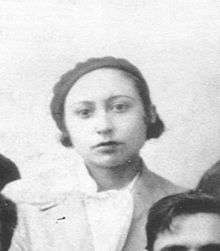
The writings of the French bisexual anarchist Daniel Guérin offer an insight into the tension sexual minorities among the left have often felt. He was a leading figure in the French left from the 1930s until his death in 1988. After coming out in 1965, he spoke about the extreme hostility toward homosexuality that permeated the left throughout much of the 20th century.[22] "Not so many years ago, to declare oneself a revolutionary and to confess to being homosexual were incompatible", Guérin wrote in 1975.[23] In 1954, Guérin was widely attacked for his study of the Kinsey Reports in which he also detailed the oppression of homosexuals in France: "The harshest [criticisms] came from marxists, who tend seriously to underestimate the form of oppression which is antisexual terrorism. I expected it, of course, and I knew that in publishing my book I was running the risk of being attacked by those to whom I feel closest on a political level".[24] After coming out publicly in 1965, Guérin was abandoned by the left and his papers on sexual liberation were censored or refused publication in left-wing journals.[25] From the 1950s, Guérin moved away from Marxism–Leninism and toward a synthesis of anarchism and Marxism close to platformism, which allowed for individualism while rejecting capitalism. Guérin was involved in the uprising of May 1968 and was a part of the French gay liberation movement that emerged after the events. Decades later, Frédéric Martel described Guérin as the "grandfather of the French homosexual movement".[26]
Meanwhile, in the United States, the influential anarchist thinker Paul Goodman came out late in his career as bisexual. The freedom with which he revealed in print and in public his romantic and sexual relations with men (notably in a late essay, "Being Queer"),[27] proved to be one of the many important cultural springboards for the emerging gay liberation movement of the early 1970s.
Contemporary queer anarchism
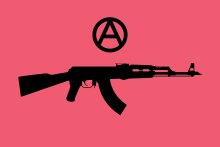
Anarcha-queer originated during the second half 20th century among anarchists involved in the gay liberation movement, who viewed anarchism as the road to harmony between heterosexual/cis people and LGBT people. Anarcha-queer has its roots deep in queercore, a form of punk rock that portrays homosexuality in a positive manner. Like most forms of punk rock, queercore attracts a large anarchist crowd. Anarchists are prominent in queercore zines. There are two main anarcha-queer groups: Queer Mutiny, a British group with branches in most major cities; and Bash Back!, an American network of queer anarchists. Queer Fist appeared in New York City and identifies itself as "an anti-assimilationist, anti-capitalist, anti-authoritarian street action group, came together to provide direct action and a radical queer and trans-identified voice at the Republican National Convention (RNC) protests".[28]
Anarcha-feminist collectives such as the Spanish squat Eskalera Karakola and the Bolivian Mujeres Creando give high importance to lesbian and bisexual female issues.
The Fag Army is a left-wing queer anarchist group in Sweden, which launched its first action on August 18, 2014 when it pied the Minister for Health and Social Affairs, Christian Democrat leader Göran Hägglund.[29]
See also
- Anarchism and issues related to love and sex
- Communism and homosexuality
- Dumba – a New York collective living space with Anarcha-queer tendencies
- Gay Shame – a movement self-described as a radical alternative to gay mainstreaming
- Pink capitalism
- Queeruption – a queercore festival where anarchists are prominent
- Socialism and LGBT rights
References
- "The story of one person's struggle against intolerance and repression during the early 20th century homosexual emancipation movement in Germany. Mackay is a very interesting figure in both anarchist and homosexual circles."Hubert Kennedy. Anarchist Of Love: The Secret Life Of John Henry Mackay. Archived March 22, 2012, at the Wayback Machine
- "Although by 1968 he could be seen as the “grandfather of the French homosexual movement” , Daniel Guérin has always been better known outside gay circles for his rôle in the revolutionary movement. On the revolutionary left of the Socialist Party in the 1930s, he was later heavily influenced by Trotsky, before becoming attracted to the libertarian communist wing of the anarchist movement." David Berry. "For a dialectic of homosexuality and revolution"
- Karl Heinrich Ulrichs had begun a journal called Uranus in 1870, but only one issue ("Prometheus") was published. (Kennedy, Hubert, Karl Heinrich Ulrichs: First Theorist of Homosexuality, In: 'Science and Homosexualities', ed. Vernon Rosario (pp. 26–45). New York: Routledge, 1997.
- Hubert Kennedy. Anarchist Of Love: The Secret Life Of John Henry Mackay.pg. 7
- Hirschfeld, Magnus, 1914. Die Homosexualität des Mannes und des Weibes (Berlin: Louis Marcus)
- Kristian Williams. "The Soul of Man Under... Anarchism?"
- According to his biographer Neil McKenna, Wilde was part of a secret organization that aimed to legalize homosexuality, and was known among the group as a leader of "the Cause". (McKenna, Neil. 2003. The Secret Life of Oscar Wilde.)
- Linse, Ulrich, Individualanarchisten, Syndikalisten, Bohémiens, in "Berlin um 1900", ed. Gelsine Asmus (Berlin: Berlinische Galerie, 1984)
- Gottfried Heuer. "Otto Gross (1877-1920) - Biographical Survey".
- "IDEAS OF MAX STIRNER.; First English Translation of His Book, "The Ego and His Own" -- His Attack on Socialism -- The Most Revolutionary Book Ever Published." by JAMES HUNEKER
- Hubert Kennedy. Anarchist Of Love: The Secret Life Of John Henry Mackay.pg. 12
- Hubert Kennedy. Anarchist Of Love: The Secret Life Of John Henry Mackay.pg. 8
- New York: Howard Fertig, 1985.
- Hubert Kennedy. Anarchist Of Love: The Secret Life Of John Henry Mackay.pg. 35
- Nikolaev, Alexej (1947). First among Equals (in Russian). Moscow. p. 124. ASIN B0719CM1ZT.
- Skirda, Alexandre (2004). "28: Nestor Makhno's Personality: Character Traits and Idiosyncrasies". Nestor Makhno: Anarchy's Coassack. Translated by Paul Sharkey. Edinburgh: AK Press. p. 296. ISBN 1-902593-68-5.
- Katz, Jonathan Ned (1992). Gay American History: Lesbians and Gay Men in the U.S.A. New York City: Penguin Books. pp. 376–380.
- Goldman, Emma (1923). "Offener Brief an den Herausgeber der Jahrbücher über Louise Michel" with a preface by Magnus Hirschfeld. Jahrbuch für sexuelle Zwischenstufen 23: 70. Translated from German by James Steakley. Goldman's original letter in English is not known to be extant.
- Quoted in Cleminson, Richard. 1995. Male inverts and homosexuals: Sex discourse in the Anarchist Revista Blanca, Published in Gert Hekma et al. (eds.)"Gay men and the sexual history of the political left" by Harrington Park Press 1995, ISBN 978-1-56023-067-0.
- "basta pensar en el lesbianismo de Lucía Sánchez Saornil" Archived 2 April 2012 at the Wayback Machine
- "R. Fue una época transgresora, emergió el feminismo y la libertad sexual estuvo en el candelero. Hay rastreos de muchas lesbianas escritoras: Carmen Conde[primera académica de número], Victorina Durán, Margarita Xirgu, Ana María Sagi, la periodista Irene Polo, Lucía Sánchez Saornil, fundadora de Mujeres Libres[sección feminista de CNT]... Incluso existía un círculo sáfico en Madrid como lugar de encuentro y tertulia.P. ¿Se declaraban lesbianas?R. Había quien no se escondía mucho, como Polo o Durán, pero lesbiana era un insulto, algo innombrable. Excepto los poemas homosexuales de Sánchez Saornil, sus textos no eran explícitos para poder publicarlos, así que hay que reinterpretarlos.""Tener referentes serios de lesbianas elimina estereotipos" by Juan Fernandez at El Pais
-
- The Parti Communiste Français was "hysterically intransigent as far as ’moral behaviour’ was concerned" (Aragon, victime et profiteur du tabou, in Gai Pied Hebdo, 4 June 1983, reproduced in Homosexualité et Révolution, pp. 62-3, quote p. 63.);
* The trotskyist Pierre Lambert's OCI was "completely hysterical with regard to homosexuality"; Lutte ouvrire was theoretically opposed to homosexuality; as was the Ligue communiste, despite their belatedly paying lip service to gay lib. (à confesse, Interview with Gérard Ponthieu in Sexpol no. 1 (20 January 1975), pp.10-14.)
* Together, Guérin argued, such groups bore a great deal of responsibility for fostering homophobic attitudes among the working class as late as the 1970s. Their attitude was "the most blinkered, the most reactionary, the most antiscientific". (Etre homosexuel et révolutionnaire, La Quinzaine littéraire, no. 215, no. spécial : ‘Les homosexualités’ (August 1975), pp. 9-10. Quote p. 10)
- The Parti Communiste Français was "hysterically intransigent as far as ’moral behaviour’ was concerned" (Aragon, victime et profiteur du tabou, in Gai Pied Hebdo, 4 June 1983, reproduced in Homosexualité et Révolution, pp. 62-3, quote p. 63.);
- Guérin, Daniel. 1975. Etre homosexuel et révolutionnaire, La Quinzaine littéraire, no. 215, no. spécial : ‘Les homosexualités’ (August 1975), pp. 9-10.
- Letter of 27 May 1955, Fonds Guérin, BDIC, F° Δ 721/carton 12/4, quoted in Chaperon, ‘Le fonds Daniel Guérin et l’histoire de la sexualité’ in Journal de la BDIC, no.5 (June 2002), p.10
- Berry, David. 2003. For a dialectic of homosexuality and revolution. Paper for "Conference on "Socialism and Sexuality. Past and present of radical sexual politics", Amsterdam, 3–4 October 2003.
- Frédéric Martel, Le rose et le noir. Les homosexuels en France depuis 1968 (Paris: Seuil, 2000), pp.46.
- Goodman, Paul (1994), "Being Queer", in Stoehr, Taylor (ed.), Crazy Hope and Finite Experience: Final Essays of Paul Goodman, Routledge, p. 103, ISBN 0-88163-266-X
- Queer Fist blog
- "Christian Democrat leader attacked with cake". The Local. 18 August 2014. Retrieved 20 August 2014.
Further reading
- Lena Eckert. "Post-Anarchism as a Tool for Queer and Transgender Politics and/or Vice Versa?". 1993
- David Berry. For a dialectic of homosexuality and revolution. 2003.
- Terence Kissack. Free Comrades: Anarchism and Homosexuality in the United States. AK Press. 2008. ISBN 978-1-904859-11-6
- Fray Baroque & Tegan Eanell (Eds). Queer Ultraviolence: BashBack! Anthology. Ardent Press. 2011
- C. B. Daring; J. Rogue; Deric Shannon and Abbey Volcano (Eds). Queering Anarchism: Addressing and Undressing Power and Desire. AK Press. 2012. ISBN 978-1-84935-120-1
- The Mary Nardini Gang. Be Gay Do Crime. Contagion Press. 2018
- Vikky Storm. The Gender Accelerationist Manifesto. 2019
External links

- Archive of queer zines

